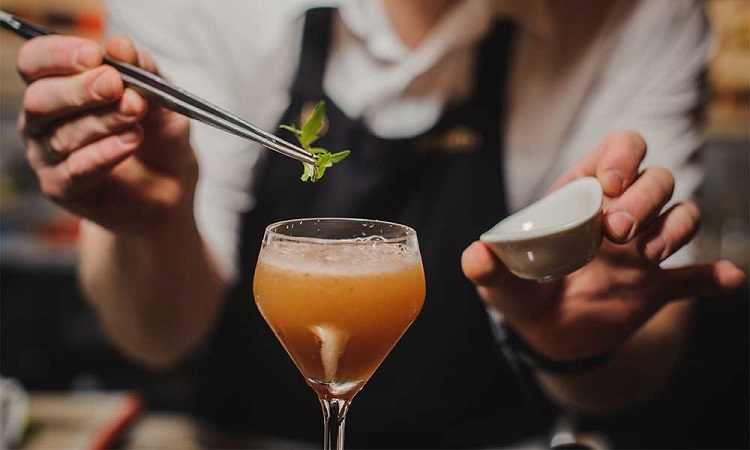A mix of knowledge, abilities, and imagination are needed in the prestigious profession of bartending in order to provide customers with outstanding beverages and unique experiences. Aspiring mixologists often register in bartending schools that provide thorough instruction in order to become professional bartenders. These classes cover a broad variety of subjects and abilities necessary to succeed in the mixology industry. We shall examine the particular topics that are often discussed in bartending courses in this post.

Understanding Bartending Essentials
- Introduction to Bartending: A description of the development, significance, and history of the profession of bartending.
- Bar Equipment and Tools: Educating pupils about the fundamental barware, supplies, and instruments used in serving drinks, such as shakers, strainers, muddlers, and jiggers.
- Bar Setup and Organization: Teaching students how to set up and organize the bar area properly, including how to stock merchandise, arrange glassware, and keep it clean.
Mixology Techniques and Recipes
- Cocktail Components: Studying the basic ingredients of cocktails, such as the spirits, liqueurs, bitters, mixers, and garnishes.
- Mixology Techniques: teaching numerous methods for making balanced and aesthetically pleasing cocktails, including as muddling, shaking, stirring, stacking, and garnishing.
- Classic and Contemporary Cocktails: introducing students to a variety of current recipes that demonstrate ingenuity and invention, as well as traditional drinks like the Martini, Old Fashioned, and Margarita.
Product Knowledge
- Spirits and Liqueurs: A thorough examination of the many varieties of alcoholic beverages, such as whiskey, vodka, rum, tequila, gin, and vermouth. This entails becoming familiar with their manufacturing processes, taste characteristics, and suggested combinations.
- Wine and Beer Basics: Giving a general knowledge of the areas, styles, and serving methods of wine and beer can help the bartender make more intelligent matching suggestions.
- Non-Alcoholic Beverages: Bartending classes often include a component on making tempting mocktails and non-alcoholic cocktails in response to the rising demand for non-alcoholic choices.
Customer Service and Bar Etiquette
- Communication Skills: putting emphasis on the value of excellent customer interaction, including active listening, making drink recommendations, and rapport-building.
- Responsible Service: Teaching bartenders how to serve alcohol responsibly, comprehend the law, and recognize intoxication symptoms.
- Bar Etiquette: Teaching the appropriate behavior, time management, and multitasking techniques needed to succeed in a busy bar setting.
Bar Management and Business Skills
- Inventory Management: Giving advice on inventory management, stock replacement, and purchasing materials to have a well-stocked bar.
- Menu Creation: Helping students create interesting drink menus that satisfy a variety of client tastes and modern fashions.
- Sales Techniques: Giving bartenders the sales skills they need to upsell and advertise special deals, increasing the establishment’s revenue.
Conclusion:
The broad curriculum of bartending classes includes a wide variety of subjects and abilities that are essential to the profession. These courses provide prospective bartenders a strong basis for success in the field by teaching them how to master mixology methods, traditional recipes, build product knowledge, and hone customer service abilities. Enrolling in a bartending class in New York may be a wise investment in your career development, whether you’re trying to pursue a job in the industry or are just looking to improve your mixology abilities.
Read More Here:
What are the Benefits of Skateboard Learning
How does Skateboard Learning Contribute to Physical Fitness and Overall Health
How does Skateboard Learning Foster a Sense of Community and Social Bonds
What Are Some Good Skateboarding Tips for Beginners
What Tricks or Techniques do Skateboarders Want to Learn
What is the Duration of the Bartending Course
Do Bartending Classes Include Hands-On Training Behind the Bar
Does the Course Provide Mocktail or Mixology Competitions
Do Bartending Schools Issue Certification Upon Completion of the Course
What are the Essential Components of a Recurve Bow
How to Determine Your Dominant Eye for Archery
Exploring the Different Types of Arrow Rests in Archery
How Mobile Apps Can Enhance Your Archery Skills
How to Develop Consistency in Your Shot Execution in Archery
